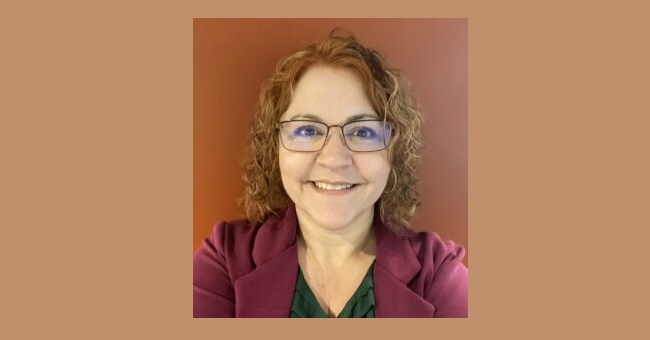Opinion
by Jen Ciolino
How I came to UU, and our seven principles
I am a relative newcomer to Unitarian Universalism, having come to the faith just under nine years ago and already in my 40s. I was moving away from a city metropolitan area to a smaller town of only about 40,000 people. While the town was small, there were over 100 churches. I realized that being part of a faith home was something I needed to consider for our family to help us fit into our new community. I started by searching for a Buddhist temple, and I stumbled on the local UU congregation because they hosted a weekly Sangha.
I was curious what kind of non-Buddhist church would host a Buddhist practice, so I explored the website, specifically looking to understand what Unitarian Universalists believe. I found it to be very different from other religions I had explored or practiced in that there was no particular required creed. Instead, I found and read the seven principles. The first time I read the principles, I was moved to tears and wondered if it was possible that I had found a church home where I could actually belong. The three principles that resonated most strongly for me are the first, third, and seventh. When people ask me about my religion, and I tend to blend those principles in my answer, saying something like, “We honor the inherent worth and dignity of every person, accept and encourage each person’s individual spiritual journey, and understand how we are all interconnected.”
I have learned through conversation and personal experience that each Unitarian Universalist is drawn more strongly to different principles, and that each UU tends to explain Unitarian Universalism in a different way. I see that as one example of how we live our principles, where each of us is on a unique spiritual journey.
I have never believed our principles to be perfect, in fact, far from it. I have seen people abuse the fourth principle by bringing their own definition of “responsible” to “a free and responsible search for truth and meaning.” I have balked at the fifth principle, believing that sometimes the majority become the oppressor simply because they can, even without oppression as an intent. I have felt that the second and sixth principles were “watered down,” setting an aspiration for a world nirvana without any guidance or accountability of how we live our faith to achieve that.
Nonetheless, I have supported our principles as written, and I have found my own meaning in them, with all of their beauty and all of their warts, much like UUs often do when elements of rituals or language aren’t an exact match for our own unique spiritual journey.
My first exposure to Article II
It was only very recently that Article II was something I was aware of. I had heard rumblings that our faith was trying to tackle racism in our congregations and in our society. I didn’t know what was happening, but I was so happy to hear that we were doing that. For quite some time I had seen how active and inclusive the church was for people who were LGBT. But I had always felt our disconnect to the reality of racism in our society, and my (black) husband and I have joked on many occasions that “UU so white.” I wondered if the reason that the faith hadn’t worked on racism was based in the fact that it doesn’t directly affect many of its adherents, since we are so overwhelmingly white.
As much as I love what Unitarian Universalism stands for, I have seen racial oppression receive lip service in our faith while seeing systemic initiatives for other topics, like certified Welcoming or Green congregations.
Then I read an opinion piece about a proposed Article II revision. I had a visceral reaction to what I read. I hadn’t read the current or the new Article II, but the opinion I read felt like a slap in the face. The piece tore into the language in the proposed Article II in a way that felt like it was attacking efforts to be racially inclusive and bring racial justice to the same level of prominence as LGBT justice in our congregations. It attacked language that those involved in racial justice know well, and I saw it as yet another symptom of the very racial oppression we say we abhor. I didn’t hear in that piece anything that centered the voices or experiences of the racially oppressed or of those who drafted the language.
I have since read additional opinion pieces. One common theme I run into cites that our principles of inherent worth and dignity of every person, along with justice, equity and compassion in human relations already cover racial injustice. It felt like the UU equivalent of “All Lives Matter.”
Article II – why it is important
I have now read Article II in its most recent form. I have not been following its development over the last couple of years, and I don’t know how it has evolved in its many versions. Those on the commission embody racial and generational diversity, along with a blend of formal religious training and lay people. I saw a commission of people dedicated to our faith and committed to this important work. And I saw the long list of stakeholders whose feedback the commission needed to consider.
To me, the language details of Article II are not as important as what it represents; whose voices are centered; and how it strengthens our faith. As a living faith, I am so proud to see us bravely and boldly seek progress. With the increasing diversity and multiculturalism in our society and in our world, and with the decline in numbers of faith adherents, our reality is we have to continue our progressive path. As my child once said to me, “The opposite of change is death.”
So I read Article II with an excited and open heart. I read it from a place of wanting wholeheartedly to support it. I fully expected it would not be perfect, and I read it assuming best intent and with full spiritual trust in those commissioned to do this work.
Article II – I see beauty in our faith
The first element of beauty I find is in the opening section on Purposes, stating, “The purpose of the Unitarian Universalist Association is to actively engage its members in the transformation of the world through liberating Love.” In reading this, I experienced the commitment of our association to all of us and to manifesting the aspirations outlined in our current principles.
In the next section, Values and Covenant, the introduction speaks to my heart and to my reason for being a UU. The first part says, “As Unitarian Universalists, we covenant, congregation-to-congregation and through our association, to support and assist one another in our ministries. We draw from our heritages of freedom, reason, hope, and courage, building on the foundation of love.” This says to me that we are a community first, and that we honor our past, respect our individuality, and build on Love as our foundation with hope in our hearts and courage in our actions.
The next two sentences are crucial in boldly proclaiming that our faith must be lived to be manifest: “Love is the power that holds us together and is at the center of our shared values. We are accountable to one another for doing the work of living our shared values through the spiritual discipline of Love.” This says to me that we are not passive in this faith; we are active. We do not simply pay lip service to our values and principles; we bring them to life. This segment embodies the part of our own congregational covenant when we say, “Service is our prayer.”
Article II – some criticisms
As a person in a corporate career, there were elements of the proposal that struck me as an attempt to take large, complex issues and make it simple, resulting in the new graphic with the single words. I thought it missed the mark in many ways. I see that graphic as something we can anchor to in our religious exploration. The commission was writing words for Article II (and maybe they needed a visual artist!), and I would offer that the best use of this graphic is a basis from which to explore our faith, not a “logo” for Unitarian Universalism.
I have heard some say the new Article II is missing the poetry of our current principles. I understand that perspective, and I initially shared it. I asked myself to reconsider where I expect to find that beauty and poetry. What I found is that it is evident in the opening section for the values, and it is evident in each individual value. I think I was looking to read the values the same way I read the principles. I reframed my expectation, and I found the poetry and beauty I thought I was missing.
I have heard some say the language change from principles to values somehow fundamentally changes who we are. I did a lot of research on those terms, and I found mixed results about whether principles underlay values or the other way around, and whether principles or values are the basis for action. Either way, I concluded it was a semantics discussion that didn’t really impact the overall message for newcomers; it required a shift in thinking for those who might grieve the loss of what they have incorporated into their lives for so many years. I hope that if this article passes, many congregations will continue to honor their heritage of the principles by continuing to put them alongside the new values. I don’t think we as individuals or as congregations have to choose one or the other; both can live within us.
I have heard that some believe that the revised Article II pushes us away from being a faith organization by requiring activism. I humbly disagree. I do not see this Article challenge us to go beyond ourselves and our congregations in our actions. Instead, I see this Article challenge us to be uncomfortable where we might be complacent, to be willing to change ourselves where we discover we create barriers, and to continue to live our faith in our lives, beyond how we live our faith within the walls of the sanctuary.
Final words
This type of change is especially challenging for us because we have built our faith, our rituals, our language, and our lives around a set of words that have deep meaning for us. I offer that this is exactly why we need a bold change. We are by our own proclamation a progressive and liberal faith. We want to see our world transform around us, to see the manifestation of justice, equity, and compassion in human relations; the manifestation of a world community with peace, liberty, and justice for all.
Would I have written some elements of Article II differently? Of course! Are there elements that could be improved? Of course! Will it ever be perfect or make everyone happy? Of course not.
It is time for us to allow new voices to articulate our faith, to keep us moving forward, and to help our faith change with our world. Growth comes from a place of discomfort. I am ready to embrace the discomfort of reframing my own faith. And I will do that while holding and honoring the steppingstones that brought us to where we are.

